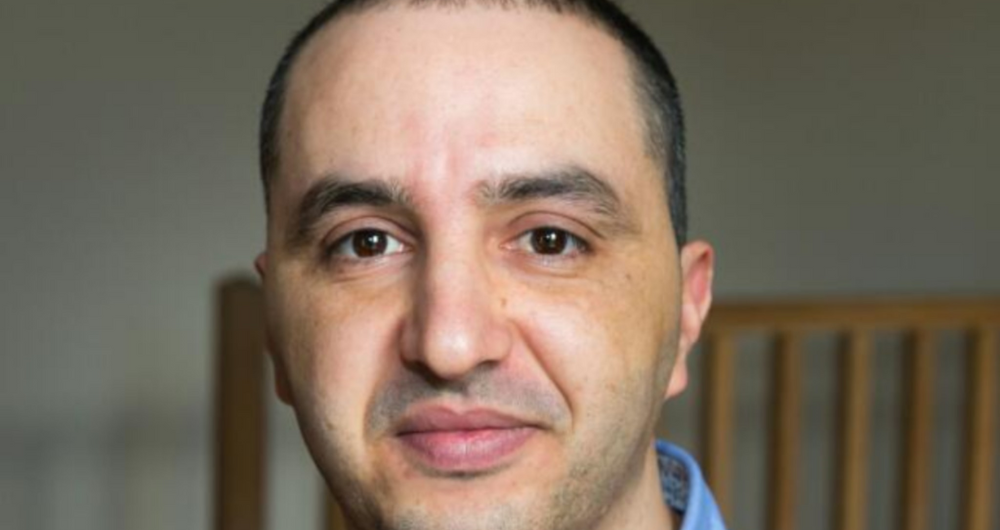
Houssem Chatbri leads a team of data scientists across global locations (Dublin, NYC, London, Pune) in close collaboration with the business to develop AI/ML models that focus on creating revenue growth opportunities, improving the client experience, increasing operational efficiency and ensuring regulatory compliance. Prior to his work in BNY Mellon, Houssem worked as a Postdoctoral Researcher and IRC Fellow at the Insight Centre for Data Analytics at DCU. Then, he moved to the industry and took different roles in areas including computer vision for various applications (e.g. security, video moderation), healthcare and health insurance, document digitalisation and understanding, and other areas of pattern recognition, image and video analytics. Houssem holds a PhD in computer science from the University of Tsukuba in Japan in 2016, and he was a visiting scientist to Rochester Institute of Technology (RIT) in New York US and to University of New England in Australia during 2014 and 2015.
Tell us about your career since Insight.
I joined Insight in March 2016 as a Postdoctoral Researcher and IRC Fellow and started working on a number of Irish and European projects in AI, including autonomous driving, hand gesture recognition and video analytics for content-based retrieval. I enjoyed working at Insight very much but kept being intrigued by the vibrant industry ecosystem in Ireland. I eventually left the centre in January 2018 to work at an AI start-up as a Data Scientist. Since then, I moved jobs a number of times as more opportunities came in until I landed my current job at the Bank of New York Mellon (BNY Mellon), which is the largest global Custodian and the oldest American bank.
I started working at BNY Mellon as a Senior Data Scientist in 2020. Later, I was promoted to become the Manager of the EMEA Data Science team, and then a Director of Data Science and AI. Currently, I lead a team of Data Scientists to develop models for various business problems. Additionally, I lead a number of strategic initiatives to leverage opportunities in the ecosystem including university engagement, talent pipeline and AI community building. Recently, we established the Global AI R&D Hub in Dublin which will play a pivotal role in scaling our AI activities.
How did Insight benefit you in your career?
My journey at Insight played a key role in making me ready for my industry jobs later on. It did so by giving me constant exposure to the industry which gave me time and leads to prepare, instilled values in me that increased my chances for success and enabled me to think strategically and proactively plan ahead.
When I was at Insight, I had numerous opportunities to talk to many companies across project consortiums or other collaborations. This was available through weekly calls with various companies, visits to companies’ offices or visits by company representatives to our lab and similar events that were held frequently. This gave me a chance to speak to future employers and colleagues and our conversations gave me a lot of insight that helped me prepare for industry roles, including emphasis on business impact and client experience, delivery in a fast pace environment, strategy and planning, etc. I was also given a chance to contribute to a few short consulting projects through the Innovation Voucher program, under the supervision of Dr Suzanne Little and Prof Noel O’Connor, which allowed me to work on real industry pain points for start-ups that were trying to build commercial products.
This level of exposure to the industry made Insight a great environment to prepare researchers like me for industry roles.
On the other hand, I was extremely lucky to work along with senior colleagues such as Dr Suzanne Little, Dr Kevin McGuinness, Prof Noel O’Connor, Prof Alan Smeaton and others. By seeing them work, I learned a great deal about leadership and management, strategic positioning, the importance of effective communication, working with diverse teams and learning how to mentor junior colleagues.
As I grew in my career, I constantly resorted to these values to solve different problems and continue moving forward. Insight provided a great environment to learn such skills from excellent and empathic leaders and opportunities to practice them without fear of failure or of being judged.
Universities and research centres are known to provide a friendly environment and the best possible life-work balance and Insight was a great example of this privilege. This allowed me to have time to think strategically and be proactive in planning my career. Additionally, it made me able to engage with individuals who offered guidance and mentorship.
This was one of the key benefits that I enjoyed at Insight, which is sometimes taken for granted, and it is something I always try to build in my team: The importance of allocating time for strategic thinking and career planning, which benefits both the individual and the team.
Finally, another reason that made me enjoy being part of Insight is the time spent with great colleagues. I was inspired a lot by the way senior colleagues such as Dr Suzanne Little and Dr Kevin McGuinness carried their job with great dedication. Suzanne was a fantastic role model in leadership, empathy, always keen to bring opportunities to her team and elevate them to unlock their potential. I was also highly fortunate to meet colleagues including Dr Ricardo Simon Carbajo, Dr Aymen Ben Azouz, Dr Jogile Kuklyte, Dr Leonardo Gualano, and Dr Joseph Antony, who all became my friends until now, and who all went on and landed excellent R&D and industry careers.